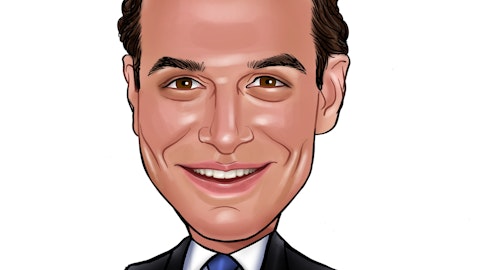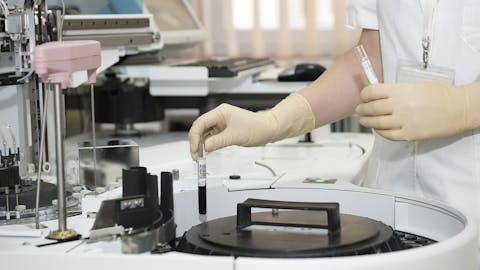Becton Dickinson and Co (NYSE:BDX) is a world leader in medication management and patient safety solutions. The company has been in operation for more than 115 years and has increased its dividend for 44 consecutive years.

With a diverse portfolio of medical products, meaningful exposure to emerging markets and a large acquisition under its belt, BDX appears to be an excellent candidate for long-term dividend growth investors to consider.
While the stock’s 1.7% dividend yield is too low for investors living off dividends in retirement, its total return potential appears to be attractive today.
The smart money sentiment towards Becton Dickinson has been more or less steady. At the end of September, 36 funds among those followed by Insider Monkey reported stakes with an aggregate value of $1.16 billion, amassing 4.20% of the company’s outstanding stock. This compares with 35 investors with positions valued at $1.37 billion in total at the end of the second quarter.
Business Overview
BDX was founded in 1897 and manufactures a wide range of medical supplies, devices, lab equipment, and diagnostics products. Some of its key products include syringes, needles, dispensing systems, and catheters, but its portfolio is well diversified. Many products help hospitals deliver medicines to patients. Customers include hospitals, clinics, physicians’ offices, pharmacies, labs, blood banks, and others.
By geography, the majority of BDX’s sales are from outside of the U.S., and the company generates around 25% of its total sales from emerging markets.
Segments
Medical (68% of sales): medication management solutions, medication and procedural solutions, respiratory solutions, pharma systems, and diabetes care.
Life Sciences (32% of sales): preanalytical systems, diagnostic systems, and biosciences.
Business Analysis
BDX acquired CareFusion for $12.2 billion in March 2015. Analyzing this deal, which was 20 times larger than any acquisition BDX had ever made, will highlight some of the strengths of BDX’s business model.
CareFusion is a provider of medical devices and diagnostic products to hospitals and physicians. This deal essentially doubled the addressable market opportunity that BDX’s medical segment had from $8 billion to $16 billion.
BDX’s extensive distribution channels, which reach all over the world, were a major driver behind the acquisition. CareFusion’s complementary products can be plugged into BDX’s existing channels to reach international markets it had never been in before (60% of BDX’s sales are abroad, but 75% of CareFusion’s business is in the U.S.).
As seen below, BDX will now be able to offer integrated medication management solutions and smart devices – from drug preparation and pharmacy to dispensing on the hospital floor, administration to the patient, and subsequent monitoring.

Source: BDX Investor Presentation
As hospitals increasingly look to cut costs and improve quality, we believe medical device suppliers will likely continue consolidating. With CareFusion under its belt, BDX should be able to better help hospitals manage their drug use and cut down on their waste for several reasons.
First, many of their products are complementary and will allow hospitals to save money by only purchasing from one supplier instead of several. For example, CareFusion manufactures equipment that pumps drugs into the catheters that are currently sold by BDX and put drugs into patients.
Additionally, CareFusion provides BDX with software that helps hospitals track drug usage and the machines they use to store medicines and fill orders. These offerings will become increasingly important as hospitals focus on becoming more efficient.
Other competitors lack the breadth and depth of BDX’s portfolio and seem increasingly likely to get squeezed out by the larger players. BDX’s brand recognition, distribution reach, and economies of scale serve as additional advantages in its markets.
Beyond its comprehensive product portfolio and distribution channels, BDX spends over $600 million on R&D and has built up an arsenal of patents. The healthcare industry also operates under numerous regulations in every country, further raising barriers to entry.
Follow Becton Dickinson & Co (NYSE:BDX)
Follow Becton Dickinson & Co (NYSE:BDX)
Receive real-time insider trading and news alerts





